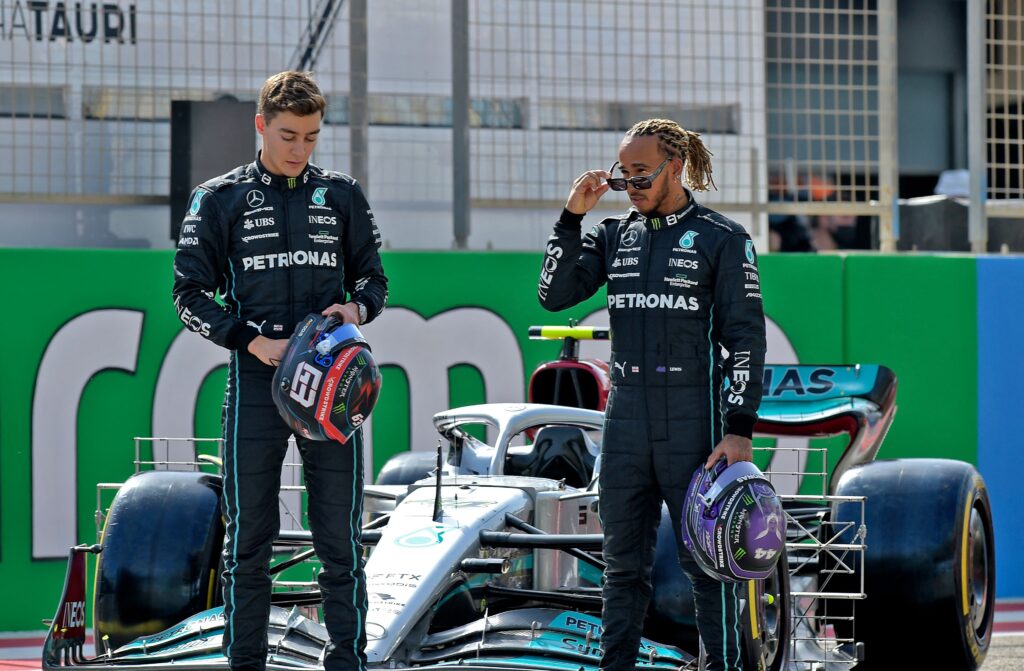
BREAKING: Lewis Hamilton officially charge” F1 to be highly obliged and sensitive” after Ralf Schumacher comes out with….
Lewis Hamilton’s recent call for Formula 1 to become more inclusive has sparked significant debate and reflection within the racing community. His comments were particularly poignant following Ralf Schumacher’s remarks, which added fuel to the ongoing discussion about diversity and inclusion in the sport.
Hamilton, a seven-time Formula 1 World Champion and one of the sport’s most prominent advocates for diversity, has consistently pushed for greater inclusivity within Formula 1. His efforts have not been limited to on-track achievements but have extended to advocating for more diverse representation both among drivers and within the sport’s organizational structure.
In a recent interview, Hamilton emphasized that while progress has been made in diversifying Formula 1, there is still much work to be done. He highlighted the importance of actively engaging in conversations about inclusivity and taking concrete actions to ensure that Formula 1 is welcoming to people from all backgrounds.
Ralf Schumacher, a former Formula 1 driver and current commentator, ignited controversy with his comments that seemed to downplay the significance of diversity efforts in the sport. His remarks underscored a lingering skepticism among some in the racing community about the need for diversity initiatives, reflecting a broader debate about the pace and direction of change within Formula 1.
Hamilton’s response to Schumacher’s comments was measured yet firm. He reiterated his belief that Formula 1 has a responsibility to lead by example in promoting diversity and inclusivity. Hamilton’s advocacy goes beyond mere rhetoric; he has taken concrete steps, such as launching The Hamilton Commission in collaboration with the Royal Academy of Engineering to increase diversity in motorsport.
The Hamilton Commission, founded in response to the lack of diversity in British motorsport, aims to identify barriers to entry and progression for underrepresented groups. Its findings and recommendations are intended to drive systemic change across the industry, including Formula 1.
Hamilton’s influence extends beyond his accomplishments on the track. As the sport’s first and only Black driver, he has used his platform to amplify voices and advocate for greater representation. His efforts have sparked important conversations about race, identity, and opportunity within the traditionally homogenous world of motorsport.
Formula 1, like many other global sports, faces a critical juncture in its evolution towards inclusivity. The sport has made strides in recent years, such as implementing the #WeRaceAsOne initiative to promote diversity and sustainability. However, challenges remain in translating these initiatives into meaningful change at all levels of the sport.
Critics argue that Formula 1 must do more than pay lip service to diversity. They call for concrete actions, such as increasing access to motorsport for marginalized communities, implementing diversity quotas, and fostering a culture of inclusion within teams and organizations.
Hamilton’s call to action is not just about optics; it is about ensuring that Formula 1 remains relevant and sustainable in a rapidly changing world. Studies have shown that diverse teams outperform their homogeneous counterparts in various metrics, including innovation and problem-solving.
The debate surrounding diversity in Formula 1 is not limited to racial or ethnic diversity but encompasses gender, socioeconomic status, and accessibility as well. Initiatives like the Dare to be Different program, aimed at encouraging more women to pursue careers in motorsport, reflect a growing recognition of the need for intersectional approaches to diversity.
As Formula 1 navigates its future, the voices of advocates like Lewis Hamilton will continue to be crucial in shaping the sport’s identity and values. His commitment to inclusivity serves as a reminder that diversity is not just a moral imperative but also a strategic advantage in today’s global marketplace.
Lewis Hamilton’s call for Formula 1 to “do more” to become inclusive is a timely reminder of the sport’s potential to lead by example in promoting diversity. His advocacy highlights the importance of systemic change and meaningful action to create a more equitable and inclusive future for motorsport. Formula 1’s response to this challenge will undoubtedly shape its legacy in the years to come.







